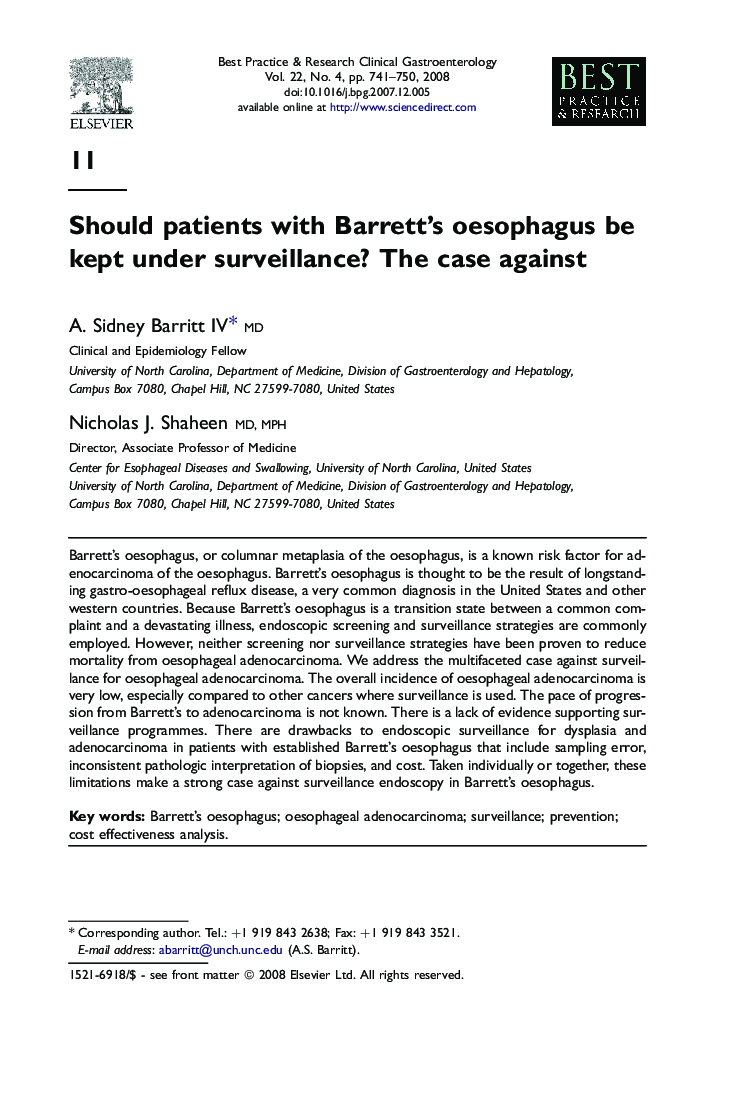| Article ID | Journal | Published Year | Pages | File Type |
|---|---|---|---|---|
| 3254683 | Best Practice & Research Clinical Gastroenterology | 2008 | 10 Pages |
Barrett's oesophagus, or columnar metaplasia of the oesophagus, is a known risk factor for adenocarcinoma of the oesophagus. Barrett's oesophagus is thought to be the result of longstanding gastro-oesophageal reflux disease, a very common diagnosis in the United States and other western countries. Because Barrett's oesophagus is a transition state between a common complaint and a devastating illness, endoscopic screening and surveillance strategies are commonly employed. However, neither screening nor surveillance strategies have been proven to reduce mortality from oesophageal adenocarcinoma. We address the multifaceted case against surveillance for oesophageal adenocarcinoma. The overall incidence of oesophageal adenocarcinoma is very low, especially compared to other cancers where surveillance is used. The pace of progression from Barrett's to adenocarcinoma is not known. There is a lack of evidence supporting surveillance programmes. There are drawbacks to endoscopic surveillance for dysplasia and adenocarcinoma in patients with established Barrett's oesophagus that include sampling error, inconsistent pathologic interpretation of biopsies, and cost. Taken individually or together, these limitations make a strong case against surveillance endoscopy in Barrett's oesophagus.
